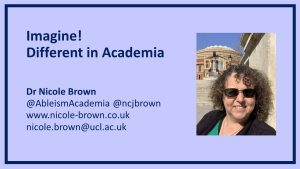
Imagine! Different in academia
Imagine! Different in academia. is the recording of a talk presented at the International Symposium on Poetic Inquiry in Cape Town in May 2022.
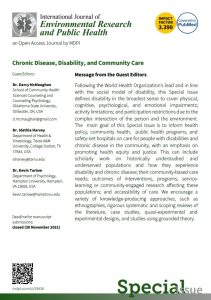
Article: The social course of fibromyalgia: resisting processes of marginalisation
This article reports an empirical study into the lived experience of fibromyalgia, which led to the identificiation of four forms of resistance against processes of marginalisation amongst those who have been diagnosed with fibromyalgia.
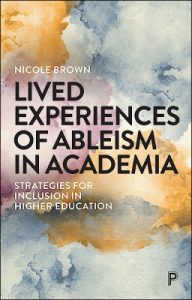
Lessons from the COVID-19 pandemic
This is an extract from my contribution to the LSE Impact blog exploring lessons from the COVID-19 pandemic.

Accessibility in higher education: key principles
This is an extract from my contribution to the LSE Higher Education blog exploring key principles to ensure accessibility in higher education.
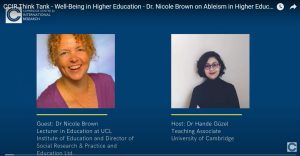
Wellbeing in Higher Education podcast: Ableism
I was invited to contribute to the Cambridge Centre for International Research podcast series to talk about the experience of disabled people in higher education and how to improve the situation.
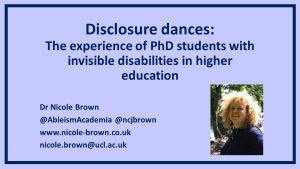
Disclosure dances: The experience of PhD students with invisible disabilities in higher education
This post is a link to a recording from my presentation "Disclosure Dances" presented on the 30 June 2021 at the UCL Institute of Education.

The lived experience of fibromyalgia
This podcast is an audio-recording with slides as it was presented on the 25th June 2021 to the fibromyalgia support group Faversham Fibromyalgia Friends.

Book: Lived Experiences of Ableism in Academia
Deeply embedded in personal experiences, this perceptive book provides examples for universities to develop inclusive practices, accessible working and learning conditions and a less ableist environment.
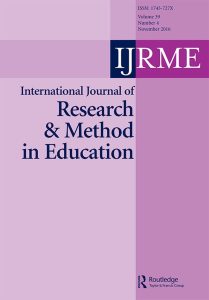
Article: Scope and continuum of participatory research
In this article, I draw on three case studies to explore the relationship between participatory and creative research methods.
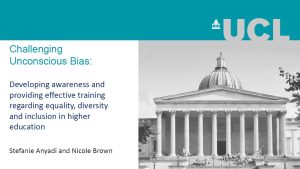
Challenging unconscious bias
This post is a link to a recording from a presentation for AdvanceHE on the topic of how to challenge unconscious bias.
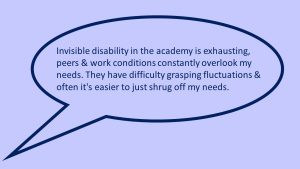
Choose to challenge: The experience of disabled women in higher education
This post is a link to a recording from my International Women's Day keynote presented on the 8 March 2021 at the University of Manchester.

Ableismus in der Akademie
This post is a link to recordings and write-ups of an ableism event held in German via the Johannes Kepler Universität Linz and Universität für künstlerische und industrielle Gestaltung Linz.
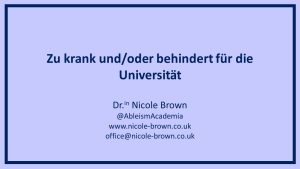
Zu krank und/oder behindert für die Universität
This post is a link to a recording from an ableism event held via the Technische Universität Wien and Exceptional Norms.

Ableismus in Academia: Trotz Fleiß kein Preis?
This post is a link to a recording from an event held via the Johannes Kepler Universität Linz, where I was asked to discuss ableism in academia.
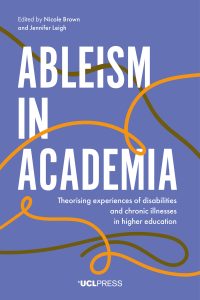
Book: Ableism in Academia
The book "Ableism in Academia" provides an interdisciplinary outlook on ableism that is currently missing. Through reporting research data and exploring personal experiences, the contributors theorise and conceptualise what it means to be/work outside the stereotypical norm.

Disability post-lockdown
This post is a link to a recording from an event held on the 25th November 2020 via the University of Birmingham, where I was asked to discuss disability experiences before and after Covid19 Lockdown.